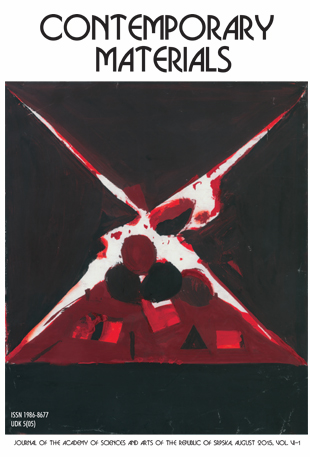SYNTHESIS AND STRUCTURE OF IRON(III) COMPLEX WITH 2-ACETYLPYRIDINE-AMINOGUANIDINE
DOI:
https://doi.org/10.7251/COMEN2101064RAbstract
Schiff bases represent an interesting class of compounds due to a wide range of possible applications, especially their biological activity. Having in mind that the biological activity of the ligand could be closely related to its coordinating properties, we examined the synthesis and structure of a novel Fe(III) complex with the Schiff base of aminoguanidine and 2-acetylpyridine.
Bis(ligand) complex of iron(III), of the formula [Fe(L–H)2]2(NCS)Cl, was obtained by the reaction of FeCl3 and the thiocyanate ligand salt in a mole ratio 1:1 in the presence of lithium-acetate as a deprotonating agent. The complex is obtained in the form of brown single crystals and is characterized by elemental analysis data, conductometric measurements, IR spectra, and X-ray analysis. The latter revealed that the chelating ligand is coordinated in its monoanionic form via pyridine, azomethine, and nitrogen atoms of the aminoguanidine fragment, forming octahedral environment.
Keywords: Schiff bases, guanylhydrazones, transition metal complexes, X-ray crystallography.
